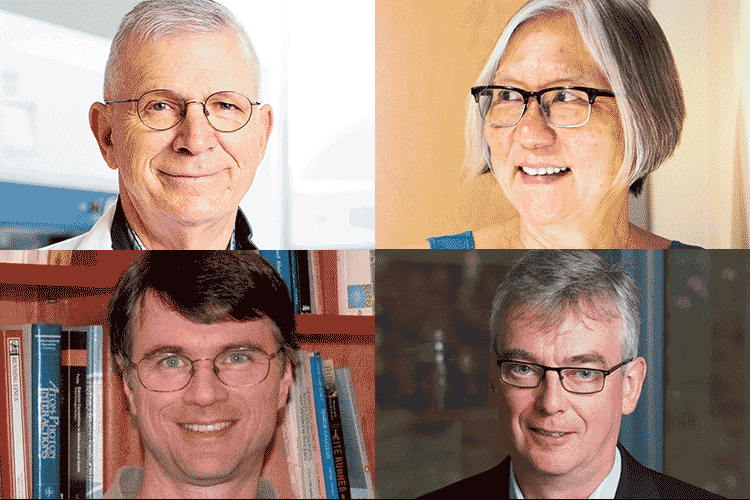London’s Royal Society elects four from Berkeley
World's oldest scientific society elects two new fellows and two new foreign members from UC Berkeley faculty

April 18, 2019
The Royal Society of London, the oldest scientific academy in continuous existence, announced their newest fellows this week, among them four UC Berkeley faculty.
The newest Berkeley fellows are U.K.-born developmental biologist Richard Harland and Australian-born chemist Martin Head-Gordon. They are joined by two new foreign members, climate scientist Inez Fung and plant biologist Brian Staskawicz. The four are among 51 new fellows, 10 new foreign members and one new honorary member.
“Over the course of the Royal Society’s vast history, it is our fellowship that has remained a constant thread and the substance from which our purpose has been realized: to use science for the benefit of humanity,” said society president Venki Ramakrishnan. “This year’s newly elected Fellows and Foreign Members of the Royal Society embody this, being drawn from diverse fields of enquiry – epidemiology, geometry, climatology — at once disparate, but also aligned in their pursuit and contributions of knowledge about the world in which we live. It is with great honor that I welcome them as Fellows of the Royal Society.”
The learned society dates from 1660 and today is the U.K.’s national science academy and a fellowship of some 1,600 of the world’s most eminent scientists.
Fung, a professor of earth and planetary science and of environmental science, policy and management, models the processes that maintain and alter the composition of the atmosphere and, hence, the climate.
Harland, the C.H. Li Distinguished Professor of Genetics, Genomics and Development and the senior associate dean of biological sciences in the College of Letters and Science, studies control of embryonic gene expression in vertebrate embryos, focusing most recently on the frog Xenopus tropicalis.
Head-Gordon, the Kenneth S. Pitzer Distinguished Professor of Chemistry, develops and applies methods to predict the electronic structure of new and interesting molecules.
Staskawicz, a professor of plant and microbial biology and a codirector of the Innovative Genomics Institute, studies plants’ innate immunity with the goal of engineering disease resistance in agricultural crops.
Distinguished scientists elected as Fellows and Foreign Members of the Royal Society